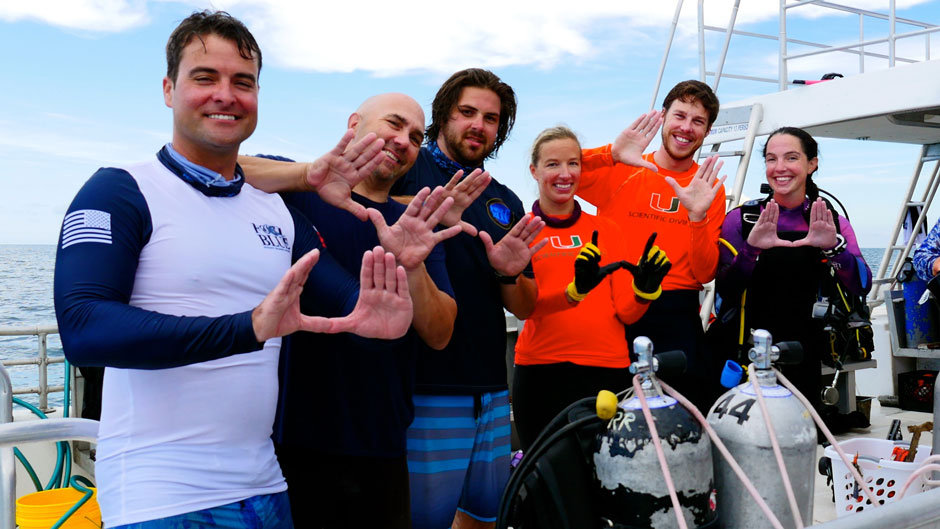Scientists from the Rescue a Reef program, part of the University of Miami Rosenstiel School of Marine and Atmospheric Science, suited up with the Miami Super Bowl Host Committee, NFL Green, FORCE BLUE, Phillip and Patricia Frost Museum of Science, and Verizon Wireless to build the Miami Super Bowl Host Committee Reef.
Divers harvested some 100 staghorn corals from the Rosenstiel School’s Experimental Hatchery to create the reef, affixing the corals to Rainbow Reef off of Key Biscayne on June 13.
“By creating this restoration plot on Rainbow Reef, it’s going to act as a hope spot,” said Dalton Hesley, senior research associate in the Rosenstiel School’s Department of Marine Biology and Ecology and lead diver for Rescue a Reef, who, in a classroom briefing held before the restoration procedure, teamed up with divers from Frost Science to demonstrate how corals are harvested and attached to existing reefs. “The staghorn thicket we build will become a catalyst to seed the surrounding coral reefs.”
The coral restoration project commemorates the NFL’s 100th season and the league’s sustainability mission to leave a lasting legacy in Miami, which will host Super Bowl LIV on Feb. 2, 2020. It also underscores the the host committee’s environmental campaign Oceans to Everglades (O2E).
The O2E campaign is a partnership with NFL Green, Ocean Conservancy, The Everglades Foundation, and Lonely Whale Foundation. O2E will focus on solutions to the critical issues facing the health of the oceans and the Everglades and will leverage the Super Bowl platform to engage the community in the environmental efforts that will leave a lasting sustainable legacy beyond Super Bowl LIV.
Rescue a Reef is the Rosenstiel School’s coral conservation program designed to build community and coastal resilience through coral reef research, restoration, and citizen science. The initiative employs science-based techniques to grow threatened coral species in underwater nurseries, creating a sustainable source of healthy coral colonies for restoration. To date, Rescue a Reef has out-planted over 15,000 corals off Miami-Dade County.

